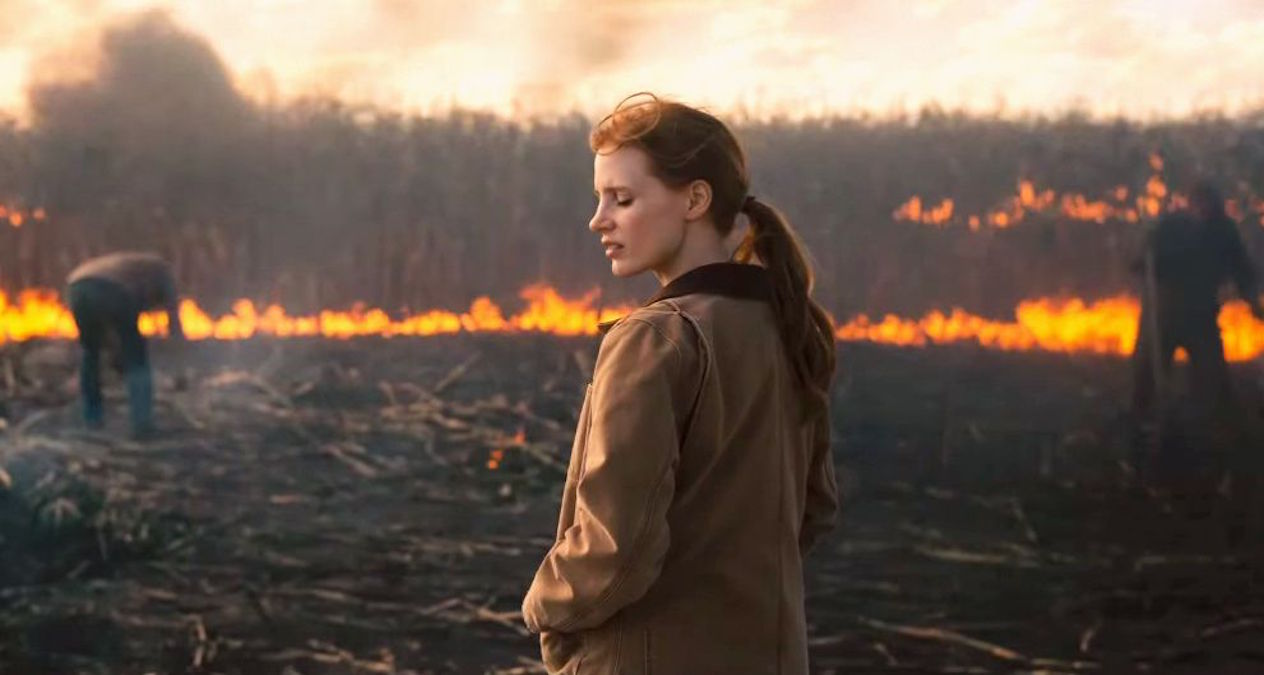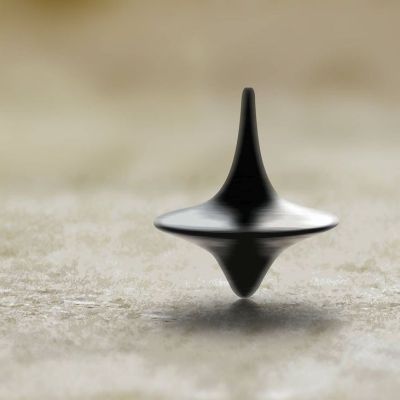It seems fairly certain now that Tenet will be released in theaters at the end of the summer. Warner Bros. confirmed as much Monday when the studio announced Christopher Nolan’s latest epic is set to open in 70 countries, including the UK, on Aug. 26. It will then make the jump stateside to vaguely determined “select U.S. cities” on Sept. 2, just in time for Labor Day weekend. While plans can change—they have before—there is almost a weary resignation about this announcement. We’re opening this in theaters in 2020, come hell or high water.
Yet one of the many bitter ironies about this choice is that it ignores a central theme of another Christopher Nolan odyssey, the star-gazing Interstellar. Every bit as ambitious and grandiose as Nolan’s other IMAX spectacles post-The Dark Knight, Interstellar grappled with cerebral concepts, including Einstein’s theory of relativity, intergalactic wormhole space travel, and the existential threat of depleted resources on Earth. The movie also, much more bluntly, dramatized the danger of anti-intellectualism and a willful rejection of scientific facts, especially the danger of beleaguered resignation.
The scene that most crystallizes this occurs during the climactic moments of the movie’s second act. Literally worlds away from where the movie’s hero Joseph “Coop” Cooper (Matthew McConaughey) struggles with the pitiful Dr. Mann (Matt Damon), Coop’s children back on Earth also face a reckoning. Now both adults who took radically different lessons from their father’s NASA legacy, Murph (Jessica Chastain) is a scientist who followed Dad into the space program, and Tom (Casey Affleck) is the estranged brother who’s happy to keep his eyes squarely focused on the ground. There is nothing wrong with farming, of course, but for Tom it’s as much a form of self-denial as it is a profession.
When the confrontation comes, Murph and friend Getty (Topher Grace) have come to the farmhouse where Murph and Tom grew up with their grandfather, and where Tom now lives with his own wife and son. In actuality Tom had two children, but one of them, Jesse, died of a lung disease caused by “blight;” a new type of dust and ecological menace that’s spread around the globe and is now coating every crop Tom owns. On this fateful day, Tom’s living wife and son are also showing symptoms of disease, and Murph wants Tom to make the tough choice: Face the reality of the situation and leave his family home.
One look at Affleck’s glower when his character enters the house announces this isn’t going to happen.
“Let me make something abundantly clear, you have a responsibility—” begins Getty before Tom punches him in the face. Murph then more succinctly cuts to the chase, “Dad didn’t raise you to be this dumb, Tom.”
And here in this moment, like many a story before it, Nolan’s Interstellar has distills the age-old conflict between science and commerce, hard truths and comforting delusions. When boiled down to its fundamentals, the scene isn’t that different from Chief Brody trying to explain to the mayor of Amity Island they need to close the beaches in Jaws, or Cassandra warning the Trojan court of a doom to come.
And yet, what’s intriguing about the Interstellar variation is that it sympathizes with Tom and his position. Unlike Murph, he wasn’t Daddy’s favorite; the educational system likewise didn’t see much promise in him. In high school a single test prevented him from going to college. Instead he was left behind, conscripted to do what society viewed as a less financially important task while his little sister excelled at university. In a handful of minutes, the implication that Tom grew bitter about both his lot and their father’s absence is self-evident. As is their connection since Cooper disappeared trying to mitigate an existential threat which has come all the same in Tom’s adulthood.
But as that grown-up, what once seemed like an abstract idea is now tragically obvious. The danger of the blight is visible in the small Cooper family cemetery outback, and it’s there on his sister’s face as she stands in his kitchen, calling him dumb. But then it’s uncomfortable looking reality in the eye like this—or being asked to forsake the only thing Dad ever left him, which was this farm.
“Dad didn’t raise me. Grandpa did,” Tom snarls. “And he’s buried out back with Mom and Jesse.” Interstellar empathizes with Tom’s plight and desire to ultimately do nothing—just keep going on and pretending everything is normal—even though the movie knows it’s a deadly delusion. After all, the film crosscuts this scene with Coop calling Dr. Mann “a fucking coward.”
What Tom is doing is cowardly. But it’s also tragic, because he refuses to accept the scientific facts of a worldwide disaster, even as they come from his own sister. So Tom refuses to uproot his remaining family, to live with Murph and what’s left of the United States’ science community, waiting for a proverbial cure that hasn’t been invented yet. He’d rather just do what makes him happy until it kills him. And not only him. “You’re going to wait for your next kid to die,” Murph apprises of the situation.
The scene is obviously a work of fiction in which there is a fantastic agricultural blight so deadly it’ll kill off all organic life on Earth in several generations—and it exists in a world where the U.S. government is still even-headed enough to launch a program to save its citizens and species. With that said, the echoes of the conflict between data-minded experts versus the wishful thinking of those who just want to keep on keepin’ on, even if it kills them and everyone they love, obviously speaks to our moment. You can see Tom in each American, maybe some of whom have legitimate reason to feel “left behind,” now refusing to wear a mask during the coronavirus pandemic.
Hence the number of confirmed COVID-19 cases currently increasing in 30 out of the 50 states. As of the time of writing, more than 4.3 million cases have been confirmed in the U.S. alone, and the death toll is about to cross the morbid threshold of 150,000 Americans. There is no sign of things getting better in North America. In fact, things are expected to get much worse, particularly as the White House attempts to force public schools throughout the country to reopen at full capacity.
As WB pointed out in a press statement, more than 30 states currently have given movie theaters the go-ahead to reopen at reduced capacity. However, there is undoubted crossover among the states where indoor theaters can reopen and those with rising infection rates. Similarly, studios and theater owners are aware of a certain risk level of opening Tenet during a pandemic, even in areas where infection rates are down. According to a report in Variety, multiple studios are likely considering releasing movies in Europe this summer “in case more theaters in Spain shutter” due to a second wave of infection.
This is not to say Warner Bros. is making the choice to release Tenet out of cynicism. Indeed, we can only speculate as to what the private conversations are behind closed doors between studio executives, filmmakers, and exhibitors. But we know Nolan is desperate to protect his love for theatrical moviegoing, which he vocalized in The Washington Post in March by correctly saying cinema is a vital part of our collective social life. It’s about as democratic a form of art as can be imagined, with all economic classes able to afford and share an experience of going to the movies.
Read more
Horrifyingly, movie theaters are facing an existential threat at the moment. The CEO of the National Association of Theatre Owners warned last week if Hollywood keeps delaying their movies until there is a vaccine “we won’t be there in a year.” So it appears likely Nolan is trying to turn Tenet into a kind of economic refuge, or at least respite, for movie theaters to weather a storm that is likely to last well into 2021.
But like Tom trying to will away the threat of blight to his family, or ignoring the protestations of his sister, Nolan and Warner Bros. are playing a risky game. Even in areas where infection rates are down, people who go see Tenet in September will be gathering in indoor theaters for hours at a time, with more than a few lowering their masks every so often to enjoy a snack or drink. On some level, I want to be one of them. I’ve savored every Christopher Nolan movie to date, and find a kind of sacrosanct comfort each time I go to a movie theater. But as with Tom and Murph’s childhood home, one needs to face the risks hidden in that comfort as the world changes.
A month ago, epidemiologist and infectious diseases expert Dr. Carlos Del Rio told CNBC, “I would honestly say I’m not comfortable going to the movies right now. I want to see the numbers come down, want to see the cases go down. Right now, the only place I am comfortable going to the movies is my living room.” In the same report, Dr. Ravina Kullar, a Los Angeles-based infectious disease specialist said, “What we are seeing now is that wave one is still going on… there has not been a decline or a plateau and that is a concern. I don’t see any change in a positive direction.”
Since then, the daily increase of new reported COVID cases has risen from around 30,000 new cases a day to between 50,000 and 73,000 cases a day. Dr. Anthony Fauci, director of the National Institute for Allergy and Infectious Diseases, predicts we could likely soon see 100,000 new confirmed cases of coronavirus infection a day.For me, going to a movie theater is like going to church, or like working the same field as your father and grandfather is to Tom in Interstellar. It’s home. But until there is a solution to the problem, it is better to listen to the Murphs and Faucis of the world than wait around for another kid to die.


